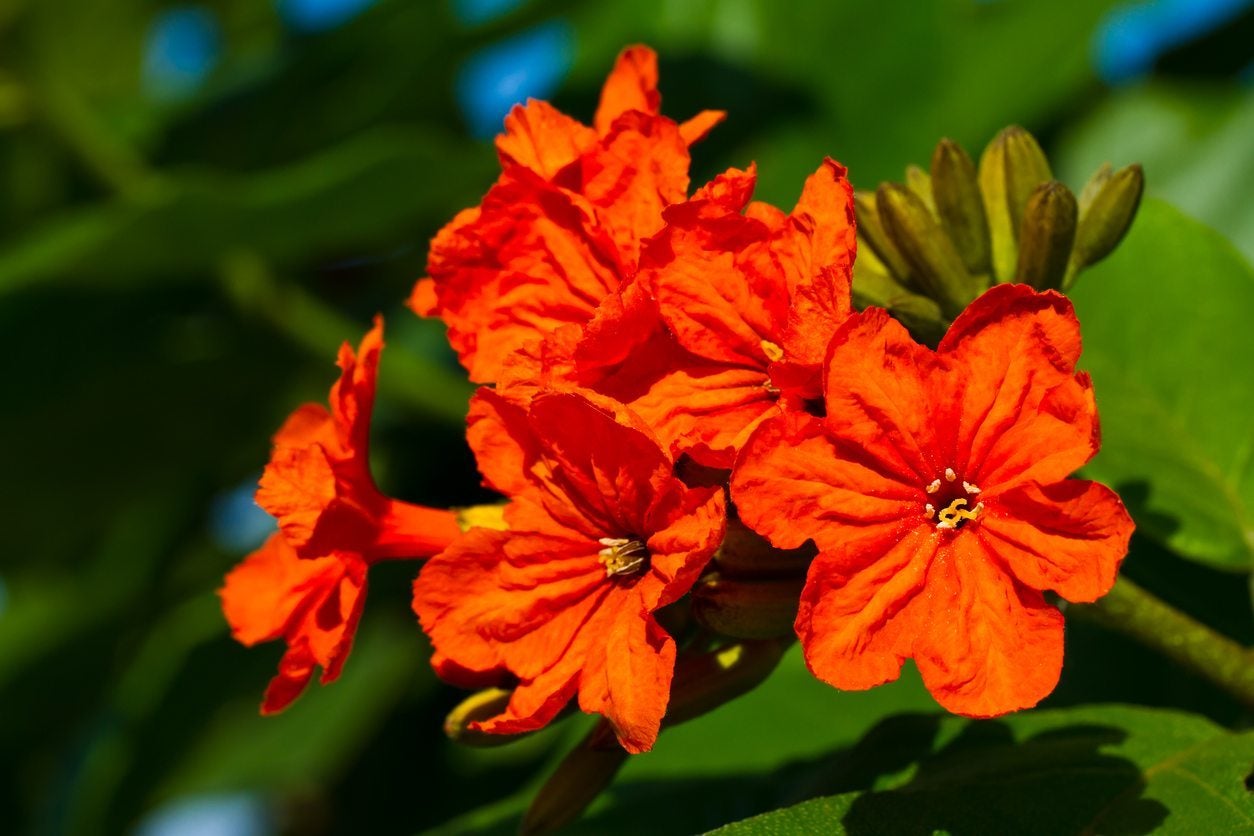Geiger Tree Info: How To Grow Geiger Trees

Sign up for the Gardening Know How newsletter today and receive a free copy of our e-book "How to Grow Delicious Tomatoes".
You are now subscribed
Your newsletter sign-up was successful
If you live in a coastal region with salty soil, or if your property is exposed to direct salt spray, it can be difficult to find interesting landscape plants that will thrive. The Geiger tree (Cordia sebestena) might be the tree for you. It can grow in sandy, salty, alkaline, and dry soils. It can grow as a street tree in a confined space. It’s also one of the best flowering trees for direct salt spray. However, it cannot tolerate any frosty weather.
Geiger Tree Info
So, what is a Geiger tree? It is a relatively small tree with orange flowers and evergreen leaves. It is also known as scarlet cordia or orange cordia. Several related trees in the Cordia genus feature white or yellow flowers and enjoy similar conditions. Geiger trees are native to the Caribbean islands and possibly to Florida. They can grow in zones 10b to 12b, so in the mainland U.S., south Florida is the only place suitable for growing this species. However, its white-flowered relative Cordia boisseri is more cold tolerant. The flowers appear year-round but are most abundant in summer. They appear in clusters at the end of branches and are usually bright orange. This tree does produce fragrant fruits that drop onto the ground, so only plant one in a location where these fruits will not be a nuisance.
How to Grow Geiger Trees
Growing a Geiger tree is a way to add beauty and color to a coastal garden or urban lot. The tree can also be grown in a large container. Its maximum size when growing in the ground is about 25 feet (8 m.) tall and wide. Plant your Geiger tree in full sun to enjoy the maximum number of flowers. However, it can also tolerate partial shade. A soil pH of 5.5 to 8.5 is best. Once established, it is tolerant to both flooding and drought. For optimal Geiger tree care, prune the tree as it grows to select a single trunk. If not pruned, a Geiger tree can develop multiple trunks that can eventually weaken and split. Mature seeds can be used to propagate the tree.
Sign up for the Gardening Know How newsletter today and receive a free copy of our e-book "How to Grow Delicious Tomatoes".
Ilana Goldowitz Jimenez is a scientific and agricultural writer with a B.S. in Plant Sciences from Cornell University and a PhD in Chemical Biology and Infectious Disease from Harvard University.